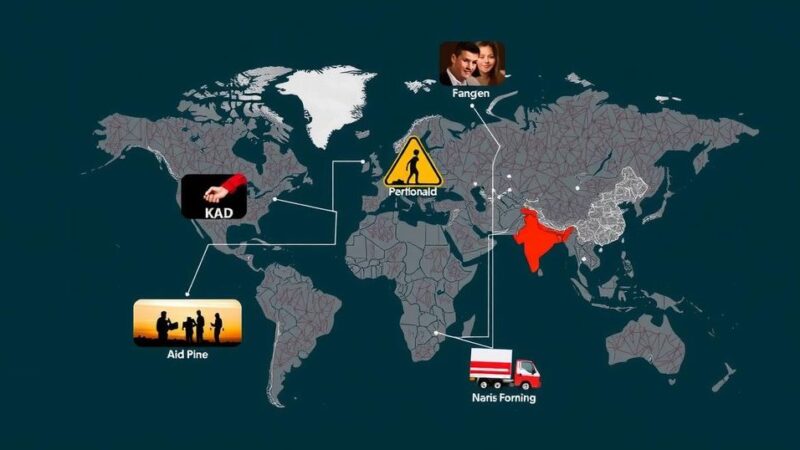Egypt is intensifying its military operations in Somalia ahead of the Ethiopian troop withdrawal deadline, while simultaneously training Somali forces to combat Al Shabab. This development arises amid heightened tensions surrounding the Grand Ethiopian Renaissance Dam and Ethiopia’s military presence in the region, with both Egypt and Somalia expressing opposition to Ethiopia’s geopolitical maneuvers.
Egypt is escalating its military mission in Somalia as the deadline for Ethiopian troop withdrawal approaches on December 31. Reports indicate that Cairo is simultaneously training and assisting Somali security forces in combating Al Qaeda-affiliated militants. This military initiative follows a significant cooperation agreement signed between Egypt and Somalia in August, which has facilitated the transfer of arms, military advisors, and counter-terrorism specialists to Mogadishu. By the end of the year, an extensive Egyptian military presence is expected in Somalia, with projections suggesting the involvement of thousands of personnel. Ethiopia currently maintains approximately 22,000 troops in Somalia under a bilateral agreement and as part of an African Union peacekeeping mission aimed at countering Al Shabab. The relationship between Egypt and Somalia is marked by tension with Ethiopia, particularly concerning the Grand Ethiopian Renaissance Dam, which Egypt claims threatens its vital Nile water resources. In an additional point of contention, Somalia has objected to a recent agreement between Ethiopia and Somaliland that purportedly jeopardizes its sovereignty by granting Ethiopia access to a port on the Red Sea. Cairo has openly stated its intentions to replace the Ethiopian peacekeepers post-withdrawal, a plan that Somalia has expressed support for. Reportedly, Egyptian-backed Somali forces have already been positioned along the supply routes utilized by Ethiopian troops to preempt possible reinforcements before the designated withdrawal date. In response to Egypt’s military mobilization, Ethiopia has reportedly escalated its troop presence in Somalia by about 7,000 personnel. Ethiopian President Taye Atske Selassie has voiced concerns regarding foreign arms potentially exacerbating instability in Somalia, implying that such arms might reach extremist groups like Al Shabab. Conversely, Somali Foreign Minister Ahmed Moallim Fiqi suggested that Ethiopia’s criticisms are an effort to distract from its own alleged arms smuggling activities in the region. Ethiopia has attempted to reassure both Egypt and Sudan regarding the dam’s impact on their interests, maintaining the narrative that the dam is crucial for its development. Nevertheless, prolonged negotiations over the dam’s operation and the filling of its reservoir have yet to yield a legally binding agreement, leading to increased tensions in the region. President Abdel Fattah El Sisi of Egypt has reiterated the Nile’s importance to Egypt’s survival, emphasizing the need for collaboration among Nile Basin countries.
The article outlines the increasing military engagement of Egypt in Somalia amidst the backdrop of Ethiopian troops’ impending withdrawal, as mandated by agreements related to the country’s security. The escalating tensions among these nations are indicative of deeper geopolitical struggles rooted in issues such as the utilization of the Nile River and competing regional interests in the Horn of Africa. Egypt’s military support of Somalia is framed as a vital effort to counter terrorism, while both nations seek to curtail Ethiopia’s expanding influence in the region and its associated economic projects that threaten their national interests.
In summary, Egypt is undertaking a significant military initiative in Somalia, coinciding with Ethiopia’s scheduled troop withdrawal. This initiative reflects broader geopolitical tensions involving water rights and regional security concerns, particularly regarding the Nile River and the Grand Ethiopian Renaissance Dam. Egypt aims to bolster Somali security forces against Al Shabab, while also striving to diminish Ethiopia’s military influence and assert its role within the region, further complicating the already fragile dynamics of the Horn of Africa.
Original Source: www.thenationalnews.com






